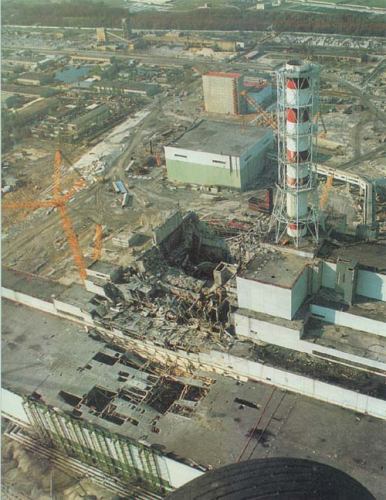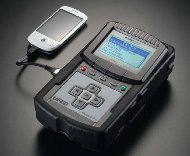US pledged €86m to seal Chernobyl under new ‘shell' - a 20,000-tonne steel shield - to prevent radiation from escaping -


The ruined nuclear reactor at Chernobyl is to be sealed within a 20,000-tonne steel shield designed to prevent any further radiation from escaping for 100 years. It would be large enough to enclose St Paul's Cathedral in London, or the Statue of Liberty.
Governments from around the world have pledged $785m (£480m) at a conference in Kiev, a week before the 25th anniversary of the nuclear accident in Ukraine – on 26 April 1986 the reactor suffered explosions and caught fire. This brings the total raised for the Chernobyl safety works to $1.8bn.
Twenty-eight governments have so far offered money. The European commission was the biggest contributor with $143m at the Kiev Nuclear Safety Summit. The US pledged $123m and Britain, which still has more than 300 hill farms in Wales under radiation restrictions following the fallout from Chernobyl, will contribute $50m. The European Bank for Reconstruction and Development announced an extra $172m. Japan, Italy and Canada are considering whether to contribute.
The planned arch-shaped structure will be 190 metres (623ft) wide and more than 100 metres tall, taking five years to build. It will replace the concrete sarcophagus erected around the reactor in the months following the accident. This shield now has cracks, raising fears that 95% of the original nuclear material remaining inside the reactor could escape.
Radiation levels directly over the sarcophagus are too high for the arch to be built over it, so the structure will be constructed in two pieces, then moved over the site on rails. It is designed so that the authorities could start dismantling the reactor from inside in 100 years.
The shield is intended to stay in place until either the radiation threat decreases or the Ukrainian government finds a permanent storage facility for the 200 tonnes of uranium and 1 tonne of plutonium within the ruins.
World governments, which had already raised more than $1.6bn in international funding for the shelter, as well as for a permanent nuclear fuel store for other reactors on the Chernobyl site, said that the currentcrisis at the Fukushima plant in Japan had persuaded them to respond to the appeal by Ukraine, which estimates that Chernobyl has cost the nation more than $12bn.
"Recent events in Fukushima have reminded us of the danger this issue may represent," said the European commission president, José Manuel Barroso.
The French prime minister, François Fillon, said Fukushima evoked memories of Chernobyl: "More than ever, our responsibility is to join together our efforts to limit the consequences of such disasters and to prepare for the future."
Mikhail Gorbachev, president of the Soviet Union at the time of the Chernobyl disaster and now head of the environment group Green Cross International, used the occasion of the 25th anniversary to say nuclear power was not the answer to the world's energy problems or to climate change.
In a statement he said: "Nuclear power has been presented as a financially sound, economically efficient, clean and safe solution that will bring about energy security and drive economic growth. Recently, the so-called 'nuclear renaissance' has hitched a free ride on the back of the need to find low-carbon solutions to the climate crisis.
"The bottom line on the economics of nuclear power is that it simply does not add up. That is why private investment is wisely focusing on better alternatives.
"It is necessary to realise that nuclear power is not a panacea, as some observers allege, for energy sufficiency or climate change. Its cost effectiveness is also exaggerated, as its real cost does not account for hidden expenses.
"In the United States, for example, direct subsidies to nuclear energy amounted to $115bn between 1947 and 1999, with an additional $145bn in indirect subsidies. In contrast, subsidies to wind and solar energy, combined over this same period, totalled only $5.5bn."
But Mohamed ElBaradei, former head of the International Atomic Energy Agency, said: "Today, nuclear power is the only real alternative to fossil fuel as a source of a reliable supply."
He acknowledged that confidence in atomic energy had taken a severe blow after the tsunami-triggered disaster at Fukushima. "Fukushima represents a potentially significant setback for nuclear power," he told participants at the forum, although he stressed that confidence would be "re-established in due course", then added: "Chernobyl and Fukushima should be shown to be aberrations."



